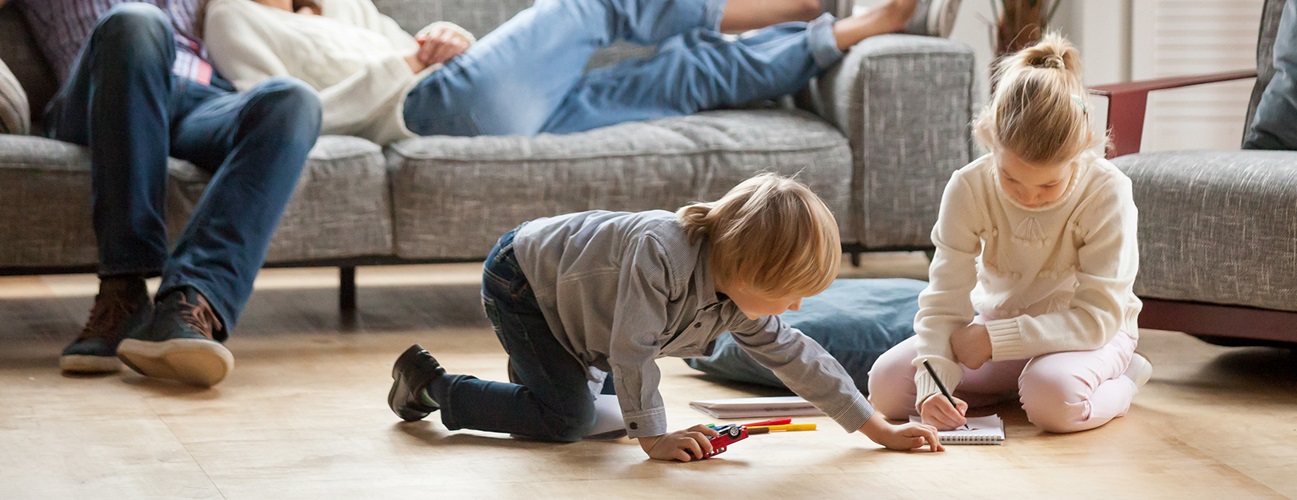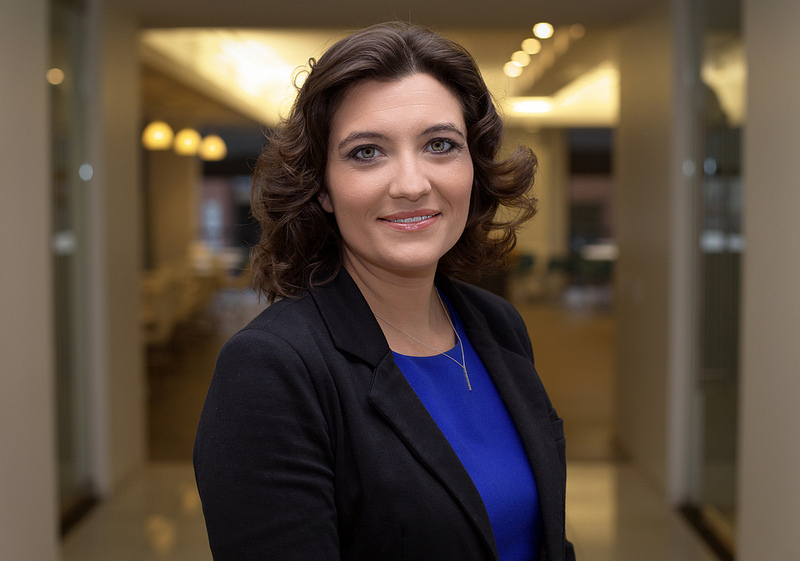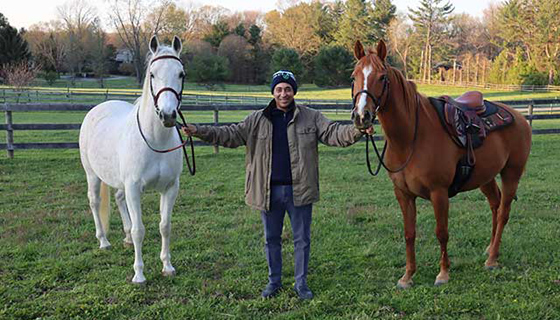Getting Real: When COVID-19 Enters a Busy Household
Featured Experts:
Families are doing some serious juggling right now, trying to work from home and care for the kids — all while trying to keep everyone well. In busy households with small children, this can be difficult at best.
We turned to Johns Hopkins All Children’s Hospital pediatric infectious disease specialist Juan Dumois, M.D. and Johns Hopkins Children Center pediatric infectious disease specialist Anna Sick-Samuels and pediatrician Megan Tschudy, for some guidance on how to make solid choices when there may not be perfect solutions, particularly if one or more parent develops symptoms of coronavirus disease (COVID-19) and needs to isolate.
Who should care for children if a parent becomes ill with COVID-19? What is your family’s backup plan?
Families should make backup plans BEFORE a parent gets sick. Every family should have a backup plan for childcare in the event one parent, both parents, or other caregivers become ill.
- For single parents or situations if both parents become ill, we recommend considering other adult relatives like aunts or uncles, or close family friends as possible caregivers. Some people who get COVID-19 only have mild symptoms that resolve quickly, however some adults may become more ill and even require hospitalization.
- We encourage families to talk to possible backup caregivers ahead of time to consider plans if they were to help care for their children.
- Families may need to be mindful that immunocompromised adults or grandparents over 60 years of age are at increased risk for severe illness, so it is recommended to consider alternate caregivers.
What should families do if one person is sick but there is another healthy adult to help care for children in the home?
If one of two parents in a household gets sick, the parent who feels healthy can be in charge of the children. Be mindful that all household members may have been exposed and could potentially become ill later.
5 Tips Kids Need to Know about Covid-19
How can families minimize exposure to other people in the home if a parent becomes ill with COVID-19 but is well enough to stay at home?
It is recommended that any sick parent or family members with COVID-19 try to isolate away from healthy family members and children. Some people may have the option of having the sick parent stay at an alternative residence until they are feeling better, but this is not a realistic option for many families.
- With one sick parent in a home with another caregiver, the sick person should remain isolated in a room with a closed door.
- The other parent can bring the sick family member food, drinks and medication to the bedside, taking care to clean his or her hands before entering the room and after leaving the room.
- They should limit their time in the room with the sick person and not touch their face while in the room.
Separating children from their parents in the home can be very difficult. A child may be told that "Mommy is sick and needs some rest, so you can't go see her until she feels better in a few days."
- If masks are available, it is recommended that the sick person put on a mask if they will be near other family members or if others are entering their room to minimize spreading the virus in the air.
- If the home has more than one bathroom, one bathroom should be dedicated for use by the sick person.
- If the bathroom has to be shared by sick and well people in the home, the toilet should only be flushed with the lid closed and surfaces in the bathroom (such as countertops, toilet handles, doorknobs and other frequently touched surfaces) should be cleaned with a disinfecting household cleaner after the sick person uses the bathroom.
What else can families do to prevent spread of COVID-19 between people in their home?
Other things people can do to reduce chance of transmitting the virus between family members includes being very mindful of hand washing for 20 seconds before eating or preparing food, after using the bathroom and before touching one’s face. If you cannot wash your hands you can use alcohol hand rub. Avoid sharing items like utensils and cups. Teach everyone in the home to cough and sneeze into the crooks of their elbows and throw away used tissues. Wipe down surfaces that we touch frequently with a disinfecting household cleaner (e.g., doorknobs, refrigerator handle, drawer handles).
What should single parents or families with two sick parents or caregivers do?
If a single parent gets sick, he or she should have plans in place to ask a healthy adult relative or friend to help care for the children. When both parents are ill, or where there is a single parent, ideally the sick children will be cared for by a well relative or friend. If that is not an option, there may be times when the sick parent feels too ill to supervise and care for his/her children and may need help. If families are need of urgent childcare, this may be a time to call 211 or to go online to 211.org where one can request assistance in finding local community resources that may be able to provide support in that circumstance.
Any other advice for these families?
Children who develop COVID-19 usually have milder illness and may not need to see a doctor. If you are concerned about your child’s symptoms, call your child’s pediatrician before going into the doctor’s office. Parents can plan to care for their children with advice from a phone call to their child's pediatrician or family medicine doctor.










